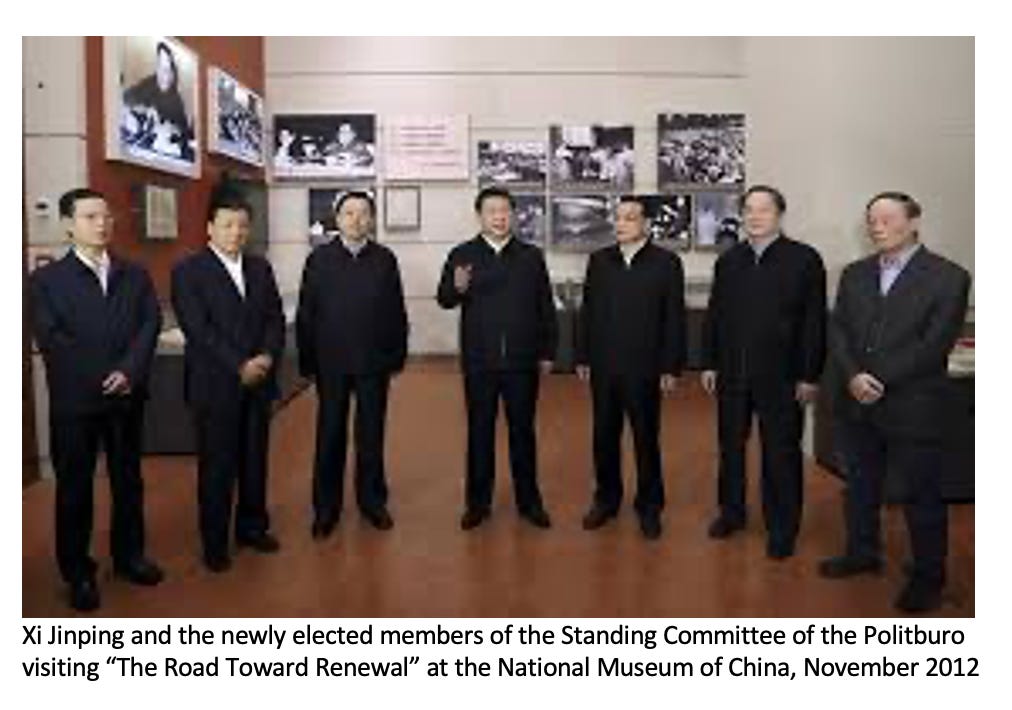Trade wars are political wars. The purpose of Donald Trump’s astonishing 145 per cent tariff on China is not a revival of the US economy of yesteryear to bring Xi Jinping, his Chinese counterpart, to the table for the bluster of another Trumpian deal. That is not going to happen. Xi, despite his uncontested one-party elections, has a political equation of his own that will not allow him to bend.
Xi’s political contract was sealed with a solemn pledge made to the Chinese people in November 2012, shortly after he was appointed General Secretary of the Chinese Communist party. On the steps of the National Museum of China, he espoused what has become known as the Chinese Dream: “Realizing the great renewal of the Chinese nation is the greatest dream for the Chinese nation in modern history.”
Framed around twin commitments to prosperity and rejuvenation, the Chinese Dream is no less a political anchor to modern China than MAGA is to Trump. It was no accident that this messaging was orchestrated to reinforce a museum exhibition that featured China’s extraordinary rise following a “century of humiliation.” Xi’s statement spoke of a national renewal from which there can be no turning back. Modern China’s political calculus flows from this promise.
Even if we in the West disagree with the principles and tactics of Chinese renewal, we need to take Xi’s commitment to this dream seriously. If anything, it has deepened over the years, spurring a nationalistic fervor that has important implications for China’s role in the world at large.
In 2021, on the 100th anniversary of the founding of the Chinese Communist Party, Xi Jinping essentially operationalized this political contract, warning that, “We will never allow any foreign force to bully, oppress, or subjugate us.”
It is in this context that we need to interpret China’s latest promise “to fight to the end” in response to Trump’s tariffs. The sequencing of actions is important here. Trump struck first, even though US Treasury Secretary Scott Bessent has tried to turn it around, claiming, “It was a big mistake, this Chinese escalation.” For China, Trump’s tariff attack falls well within the “bully, oppress, and subjugation” construct that Xi warned of.
Ultimately, however, it’s not a question of who is right or wrong, or even who landed the first punch. Conflict arises out of the collision course between two very different political mindsets.
In China a couple of weeks ago, I met with a cross-section of officials, academics, and businesspeople. Their views spanned the gamut, from Party hardliners to market-oriented modern thinkers. But irrespective of where they sit on China’s political spectrum, there was no doubt of their collective conviction. As one of my most liberal thinking friends said, “China will most definitely retaliate to another tariff attack from Trump.” That’s exactly what happened.
This argument can be taken one step further. The US has a president who acts out of anger and intimidation. China has a president who operates with strategic discipline. Unlike Trump, Xi doesn’t need to grandstand and personalize his pronouncements. China’s latest tariff response was buried on the website of its Ministry of Finance.
This trade war pits emotional policy tantrums against more dispassionate calculation. As Trump continues to put pressure on China, China has been quick to retaliate in kind. Beijing has hinted that China’s next move won’t be another tariff action. As America’s third largest export market, the second largest foreign holder of Treasury securities, possessing a chokehold on strategically vital rare earths and a currency weapon of its own, China has many more options in its arsenal. This is a race to the bottom that no one can win.





It does matter who is right and who is wrong. It impacts the degree of sacrifice that can be expected.
In reality the US is fighting to maintain the "exorbitant privilege" as per de Gaulle. Talk of wanting to balance trade is a misdirection, on the whole there isn't desire for that on the US side. Because stopping the deficit would stop the coinciding printed-money capital flow recycled back to the US. That recycling is the growth model of US financial markets.
The whole arrangement is prima facie unsustainable - it depends on other countries giving their labor and materials to the US, and accepting lower material wealth in the present, in exchange for future claims on assets that necessarily inflate away. Thanks to video content on social media, even the lowliest peasants in the agricultural regions of the US can now understand this pattern. Are they going to tolerate sacrificing their well being for Trump administration's arrogant gambit to extend the charade with threats? Not counting on it.
And we find ourselves in this conflict because of decades of demonisation of China that has been left unchallenged by Western “liberals” who hypocritically point to alleged authoritarianism in China while neglecting the greater evidence of authoritarianism in the West.